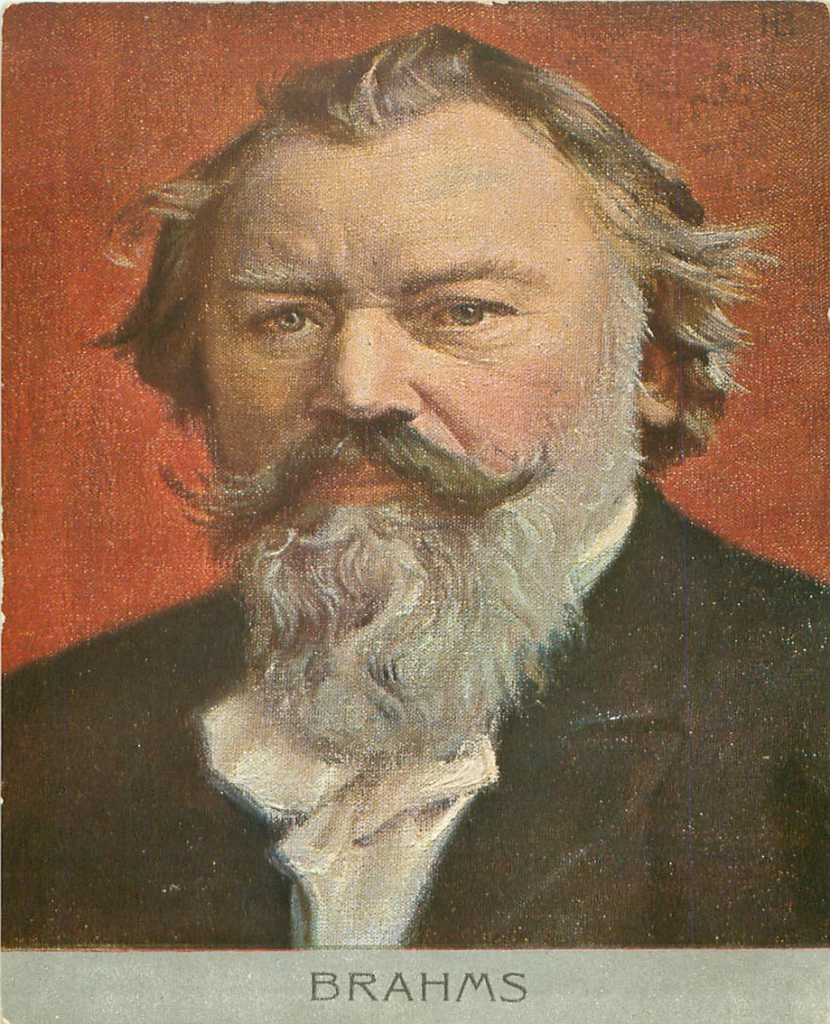
Johannes Brahms is often considered one of the greatest classical music composers. Brahms was a German composer and pianist who wrote symphonies, concerti, chamber music, piano, and choral compositions. Ludwig van Beethoven and Franz Schubert heavily influenced Brahms’s work. However, Brahms developed his unique style that incorporated many different elements from other composers. Brahms’s music is known for its complex harmonies, intricate melodies, and use of counterpoint. He is also renowned for his works’ original use of form and structure.
JOHANNES BRAHMS
Johannes Brahms (1833-1897) was a German composer and pianist who wrote symphonies, concerti, chamber music, piano, and choral compositions. Although he rejected the label, his works are often considered within the Romantic tradition. Brahms was born in Hamburg into a musical family; his grandfather, father, and uncles were all professional musicians. His father started him taking piano lessons when he was seven years old. He later trained with some of the greatest composers and performers of the day, such as Eduard Marxsen and Ferdinand David.
Brahms made his professional debut as a pianist in 1849 at 16 and began composing soon afterward. Opus 1, a collection of four piano pieces, was his first to be published; other popular piano compositions include the Variations on a Theme by Haydn (Opus 56a) and the Rhapsodies (Opus 79). He also wrote several highly acclaimed chamber music pieces, such as the String Sextet in B flat major (Opus 18) and the Piano Quintet in F minor (Opus 34).
In 1876 Brahms was appointed conductor of the Vienna Philharmonic Orchestra; he held this post until 1891. He frequently toured as a pianist during this period, performing his works as well as those of other composers.
HIS LIFE AND MUSIC
On May 7, 1833, Johannes Brahms was born in Hamburg, Germany. His father, Johann Jakob Brahms, was a double bass player, and his mother, Johanna Henrika Christiane Nissen, was a seamstress. As a child, Johannes studied the piano with Otto Friedrich Willibald Cossel. At age eight, he performed in front of an audience for the first time.
Brahms left school at the age of fourteen to support his family. He worked as a clerk and a piano teacher. In 1853, he met Hungarian violinist Eduard Reményi. Reményi introduced him to Hungarian folk music. This had a profound influence on Brahms’s compositional style.
Brahms made his first visit to Vienna in 1862. There he met composer Franz Peter Schubert and pianist Johann Baptist Cramer. He also met Antonín Dvořák, who would become a lifelong friend. In Vienna, Brahms became acquainted with the work of Ludwig van Beethoven and Franz Josef Haydn.
In 1865, Brahms’s First Symphony premiered in Vienna to great acclaim. The accomplishment solidified his standing as a premier composer of his generation. His Second Symphony was also well received. However, it was not until his Third Symphony that Brahms truly secured his place in music history.
HIS GREATEST COMPOSITIONS
Johannes Brahms is revered as one of the greatest classical music composers. His compositions are characterized by passion, emotion, and technical mastery. Brahms was a prolific composer, writing over 300 works during his lifetime. His most well-known works are his symphonies, concerti, chamber music, piano, and choral pieces.
Brahms’ symphonies are some of his most well-known and beloved works. The C minor Symphony No. 1 is his debut symphony. Op. 68, was composed in 1876 and is considered one of the most important symphonies written in the 19th century. Brahms’ other three symphonies are also highly regarded cornerstones of the orchestral repertoire.
Brahms’ concerti are some of his most virtuosic and technically demanding works. His Violin Concerto in D major, Op. 77 is one of the most popular violin concerti ever written and is considered one of the greatest works in the genre. Another well-known concerto demonstrating the ferocity and finesse of Brahms’ keyboard composing is his D minor piano concerto no. 1 (Op. 15).
Brahms’ chamber music is some of the most intimate and introspective music he wrote. His Clarinet Quintet in B minor, Op 115, is a particular favorite among audiences and performers alike.
HIS INFLUENCE ON MUSIC TODAY
19th-century German composer Johannes Brahms was born and raised in Germany. One of the best classical music composers, he is well-known, and his music is still well-liked today. Many modern composers have been influenced by his work.
Brahms was born in Hamburg, Germany, in 1833. He started learning music when he was little, and by the time he was 20, he had already composed several successful works. Brahms continued to compose throughout his life, and his music was widely performed and acclaimed.
Brahms’s work spans many genres, including symphonies, concertos, chamber music, solo piano pieces, and songs. His music is characterized by its beautiful melodies, rich harmonies, and emotional depth. Brahms was also a master of counterpoint, and many of his works feature complex polyphonic textures.
Brahms’s work has had a lasting influence on classical music. His compositions are still performed and recorded today, inspiring new generations of composers.
CONCLUSION
Johannes Brahms is one of the greatest classical music composers of all time. His work has influenced generations of musicians and continues to inspire people today.
